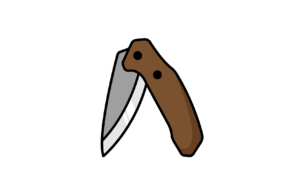
SALEM, OREGON — In Oregon, which is so far from Virginia, our first baby left us for the adventure of college and their life to come.
I’ve been a hopeful, proud wreck, but that’s still a wreck. You try to hold that in so they don’t carry your burdens, too. At least, I hope that’s true, but I’m not sure.
The campus in Salem seemed full of families during activities that pile up reassurances. We sat in an auditorium, and an alumnus described their awesome career while not in any way presenting as a psychopath, as any parent appreciates.
Implied promises abounded. The baby probably won’t get ax-murdered, join a vampire cult or develop a startling accent after dipping their toe in the liberal arts.
We said goodbye. Our baby, no longer that, walked from our stage toward theirs. It all seemed empty now, aside from our child heading toward instant ramen and caffeinated discoveries made without a parent perched on either shoulder.
This one perfect person fell from view, and there was nothing left to do but to go. You can’t stand there until they come back, no matter how sensible it seems in the moment. Colleges should warn all the loved ones about that in their literature.
You must walk away, too.
We did, and some next things followed, as they do. We held each other, got coffee, hopped into a rental, drove toward the airport. We detoured to the factory store of the company that makes the knife I’ve used for several years.
We were in Oregon. The place was between the college and the airport. It made a kind of sense to stop along the way.
Years ago, I broke cheap knives doing newspaper distribution stuff. I was scraping things out of boxes, opening bundles, cutting plastic off flats of newspapers in the warehouse, prying metal and plastic bits apart on gear all around Virginia Beach.
I bought my first good knife after busting a cheap one, but it looked too aggressive for a slob like me. Next, I got a subtler one that doesn’t make me feel like I’m auditioning for a militia.
It’s a good knife. It works well without any fuss so you either forget or forgive its cost. I doubt I’ll need another knife in my lifetime. But it was fun enough to have a look around the factory store.
My wife and I stood in a pretty room full of handsome knives. We asked more questions than we had at the college.
A kind man helped us, understanding he was dealing with non-buyers. I underlined this by mentioning how my fillet knife for fishing is a cheap chicken deboning blade repurposed by a bait shop back home.
We talked about the knife I used in the service, long retired to a drawer in my office because its blade is impractically narrow and long. I’m too sentimental to get rid of an artifact I rarely take out of its sheath. But I carried it when I was young, dressed in bellbottoms and boondockers, before I’d met my favorite people.
My wife asked about blade shapes. The man told us how knives do different things or similar things different ways.
We talked about using a knife to pry stuff, which you shouldn’t do. I’m sure I looked guilty. My knifework is 30 percent screwdriver and 20 percent scraper.
Of course, he said, everybody does it.
Of course, I agreed, having killed cheap knives this very way.
My wife and I held some pricier models. A knife I’d always admired from afar huddled small and lost with my palm around it. I held knife after knife I’d only seen in pictures or on shelves in Virginia Beach. Some of the others were too light or, to me, overly ornate. Holding one, I felt the way I get buying shoes. Why must our sneakers look like spaceships, America?
My wife had good questions, ones I wouldn’t think to ask. She asked about jimping, notches cut into a handle or the back of a blade. I take it for granted on my knife, but that’s where my thumb rests when I’m trying to keep my grip.
The man explained that it’s so you can hold it better.
We didn’t buy a knife. Mine has the right length, fits my hand, holds its edge. Those qualities are nothing to dismiss when you see something shinier. Things hum along when what you use is made well. You don’t mess with it too much, only hone it when that sort of thing is needed. When I was a kid, a strange truth somebody told me about a knife is that it’s safest when you keep it plenty sharp.
My wife bought me a sweatshirt with the company logo. It looked like the college garb some of us wear forever. I put it on outside. She took a picture. We got in the rental car and drove to dinner in Portland, then to the airport, and we flew home.
The factory store was a diversion, but it’s easier to tell you about this than the rest of it. It’s just how we spent the afternoon after we watched our first baby leave us.
That was Oregon. It has spots to fish and American-made knives. There are reasons to return.
© 2024 Pungo Publishing Co., LLC

